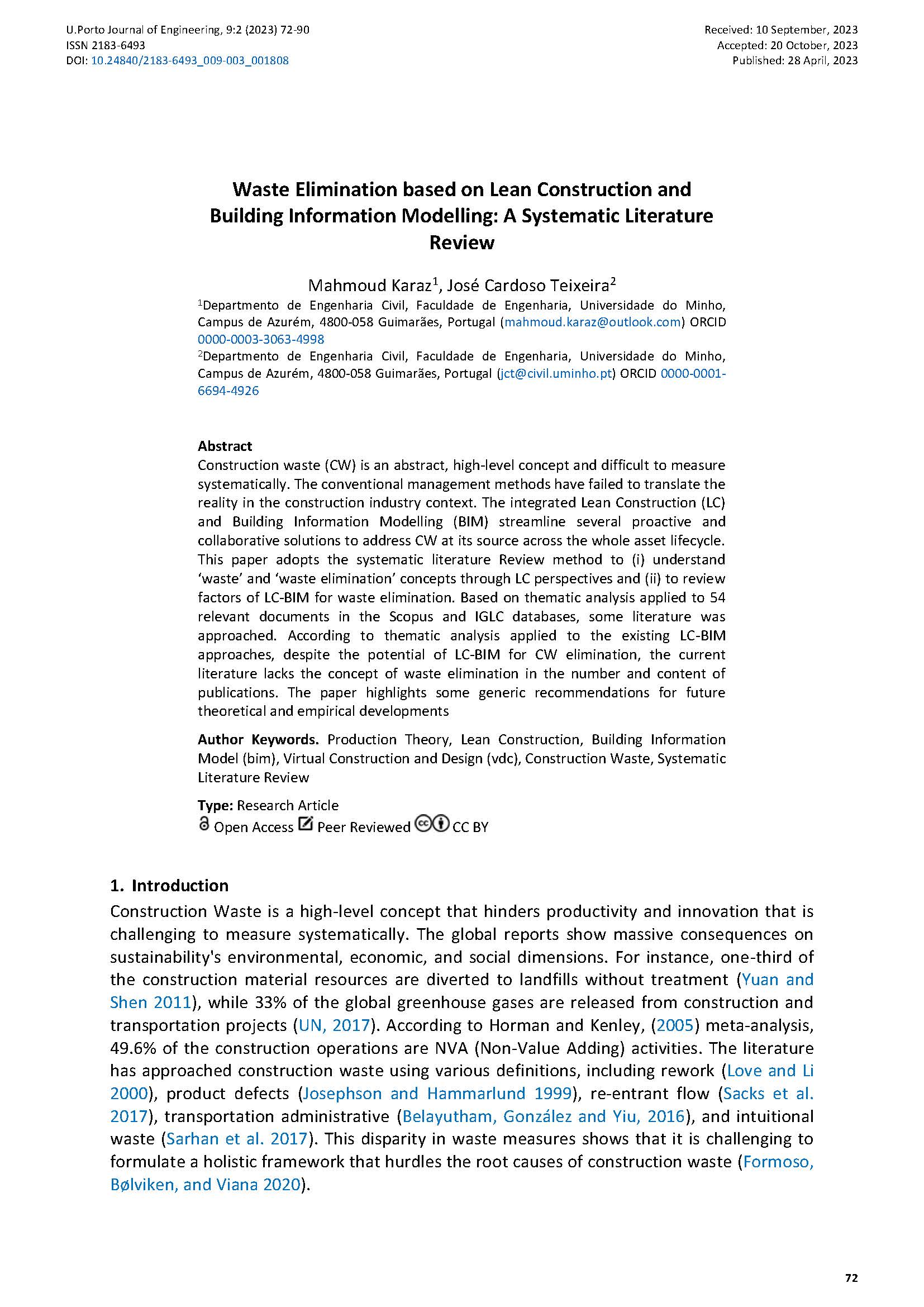Waste Elimination based on Lean Construction and Building Information Modelling: A Systematic Literature Review
Main Article Content
Abstract
Construction waste (CW) is an abstract, high-level concept and difficult to measure systematically. The conventional management methods have failed to translate the reality in the construction industry context. The integrated Lean Construction (LC) and Building Information Modelling (BIM) streamline several proactive and collaborative solutions to address CW at its source across the whole asset lifecycle. This paper adopts the systematic literature review method to (i) understand ‘waste’ and ‘waste elimination’ concepts through LC perspectives and (ii) to review factors of LC-BIM for waste elimination. Based on thematic analysis applied to 54 relevant documents in the Scopus and IGLC databases, some literature was approached. According to thematic analysis applied to the existing LC-BIM approaches, despite the potential of LC-BIM for CW elimination, the current literature lacks the concept of waste elimination in the number and content of publications. The paper highlights some generic recommendations for future theoretical and empirical developments.
Downloads
Article Details

This work is licensed under a Creative Commons Attribution 4.0 International License.
Authors who publish with this journal agree to the following terms:
- Authors retain copyright and grant the journal right of first publication with the work simultaneously licensed under a Creative Commons Attribution License that allows others to share the work with an acknowledgement of the work's authorship and initial publication in this journal.
- Authors grant the journal the rights to provide the article in all forms and media so the article can be used on the latest technology even after publication and ensure its long-term preservation.
- Authors are able to enter into separate, additional contractual arrangements for the non-exclusive distribution of the journal's published version of the work (e.g., post it to an institutional repository or publish it in a book), with an acknowledgement of its initial publication in this journal.
- Authors are permitted and encouraged to post their work online (e.g., in institutional repositories or on their website) prior to and during the submission process, as it can lead to productive exchanges, as well as earlier and greater citation of published work (See The Effect of Open Access).

